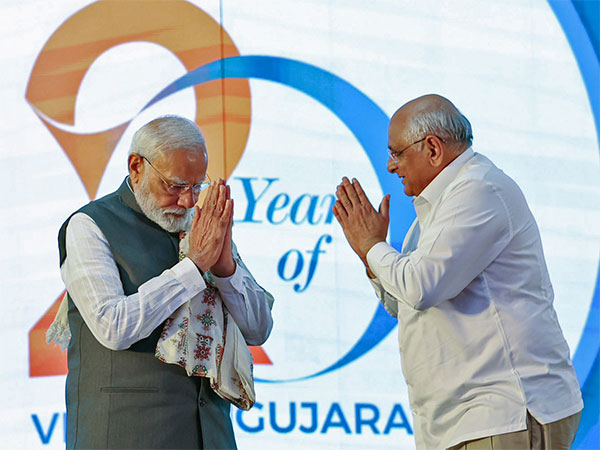Gandhinagar (Gujarat) [India], July 7 (ANI): The Pradhan Mantri Formalisation of Micro Food Processing Enterprises (PMFME) Scheme, launched on June 29, 2020, by the Ministry of Food Processing Industries, stands as a transformative initiative under the Aatmanirbhar Bharat Abhiyan, led by Prime Minister Narendra Modi.
As per the Gujarat government, the scheme aims to support India’s vast unorganised micro food processing sector by offering financial, technical, and business assistance. As part of the larger national vision of Viksit Bharat@2047, the scheme is also a critical pillar in Gujarat’s journey towards Viksit Gujarat, where local enterprises are empowered to become globally competitive.
Under the dynamic leadership of Chief Minister Bhupendra Patel, Gujarat has emerged as a front-runner in implementing the PMFME scheme, with 675 beneficiaries successfully onboarded.
“The state has ensured convergence between central assistance and state-level facilitation, enabling micro food processing units to scale up operations, adopt improved technologies, and reach new markets. These efforts are aligned with the vision of Viksit Bharat and demonstrate the state’s commitment to inclusive economic growth,” a release stated.
In Navsari, Gujarat, Lalit Thummar transformed a modest kitchen experiment into Surbhi Wafers Pvt Ltd, which now exports 1.5 tonnes of banana wafers daily to seven countries. What began with just 1-2 kg of homemade wafers grew rapidly, but manual methods couldn’t meet the rising demand. With support from the Prime Minister’s PMFME scheme, Lalitbhai upgraded to automated machines for peeling, slicing, and frying. This boosted capacity to 6 tonnes of fresh bananas daily, improved hygiene, ensured uniform quality, and extended shelf life, opening doors to international markets. Today, Surbhi Wafers is known for its authentic taste across Asia, Europe, and the Middle East. The venture has created local jobs, especially for women, and secured timely procurement for banana farmers.”
Equally inspiring is the journey of Bakulesh D. Nagar, an Ahmedabad-based entrepreneur known for his range of protein powders and energy drinks.
Having gained popularity among health-conscious individuals and fitness centres, his business soon required expansion to meet growing market demand. Under the PMFME scheme, he received expert guidance and a 35% credit-linked capital subsidy, which allowed him to upgrade his production facility with modern machinery and advanced packaging solutions. The result was a significant boost in output quality, efficiency, and brand value. His success story reflects the PMFME scheme’s emphasis on quality enhancement, innovation, and job creation within the food processing ecosystem.
The release further mentioned the story of Ghanshyam Flour Mill, founded by Mayur Vaghasiya in Surat.
“He began with a 10×10 sq ft rented shop with just three people. Today, it has grown into a thriving enterprise with three factories and eight retail outlets, employing 40 individuals. Mayur’s journey, inspired by his father, who started the business in Surat in 1998, exemplifies perseverance. He handled everything from raw material procurement to delivery, showcasing immense dedication. Mayur believes in transforming challenges into opportunities, noting, “From anger, love is born.” He emphasises the importance of a structured system, including daily stock counts and meticulous planning. Ghanshyam Flour Mill now produces over 52 types of flour, including wheat, jowar, bajra, maize, idli, and dokla flour, with all products being exported,” the release mentioned.
“Mayur fostered team enthusiasm, implemented SOPs, and empowered his staff, strengthening the company’s identity through innovative packaging and factory expansion,” it added.
The PMFME scheme provides a comprehensive support framework that includes a 35 per cent capital subsidy on eligible project cost (up to Rs 10 lakh), seed capital of Rs 40,000 per member of Self-Help Groups, 50 per cent assistance for branding and marketing, and structured training programs in technical and business development.
These Interventions aim to improve operational efficiency, enhance product quality, and create a robust ecosystem for micro food processors. (ANI)
Disclaimer: This story is auto-generated from a syndicated feed of ANI; only the image & headline may have been reworked by News Services Division of World News Network Inc Ltd and Palghar News and Pune News and World News
HINDI, MARATHI, GUJARATI, TAMIL, TELUGU, BENGALI, KANNADA, ORIYA, PUNJABI, URDU, MALAYALAM
For more details and packages












